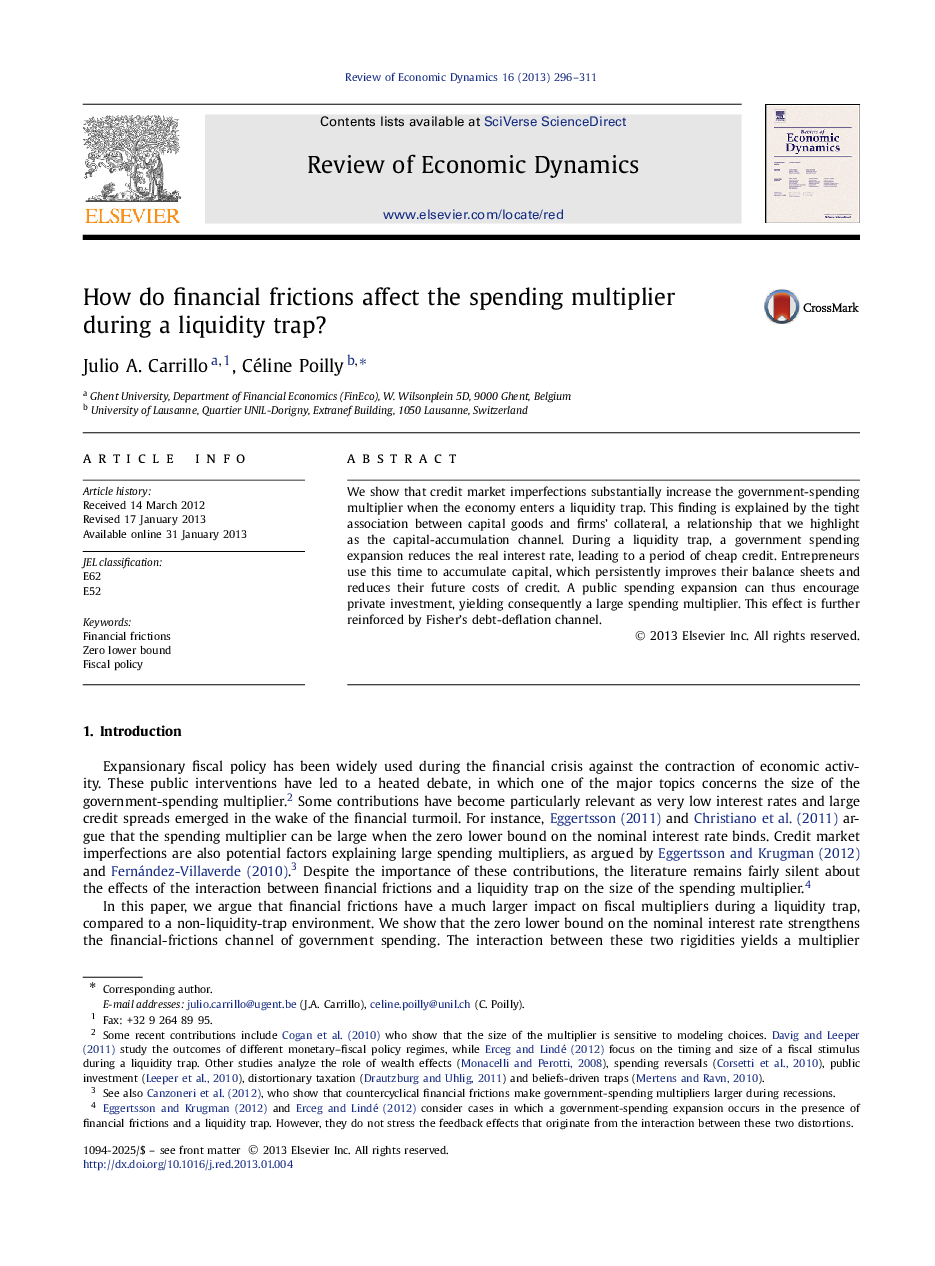| Article ID | Journal | Published Year | Pages | File Type |
|---|---|---|---|---|
| 986351 | Review of Economic Dynamics | 2013 | 16 Pages |
We show that credit market imperfections substantially increase the government-spending multiplier when the economy enters a liquidity trap. This finding is explained by the tight association between capital goods and firmsʼ collateral, a relationship that we highlight as the capital-accumulation channel. During a liquidity trap, a government spending expansion reduces the real interest rate, leading to a period of cheap credit. Entrepreneurs use this time to accumulate capital, which persistently improves their balance sheets and reduces their future costs of credit. A public spending expansion can thus encourage private investment, yielding consequently a large spending multiplier. This effect is further reinforced by Fisherʼs debt-deflation channel.
► Financial frictions and ZLB rise spending multipliers by their own. ► However, little is said about the feedback loop between these distortions. ► We show that financial frictions contribute more to spending multipliers in a ZLB. ► Fisherian debt-deflation is important but not essential in explaining this result. ► Investment is crowded-in since a time of cheap credit rises collateral over time.
